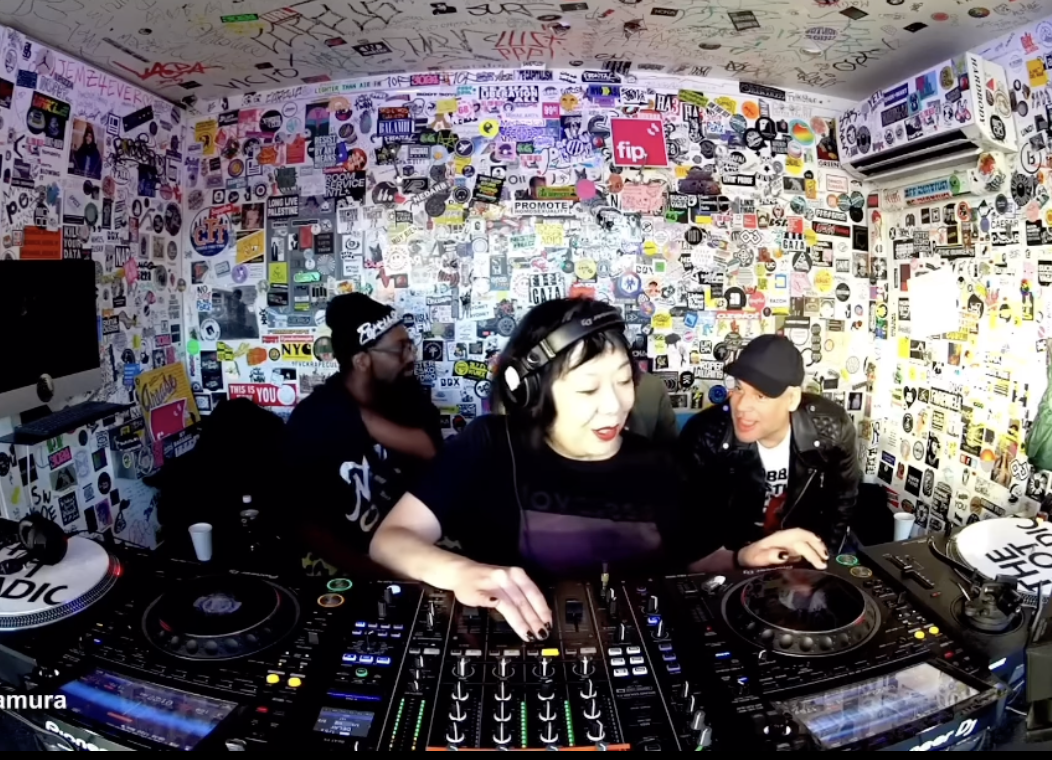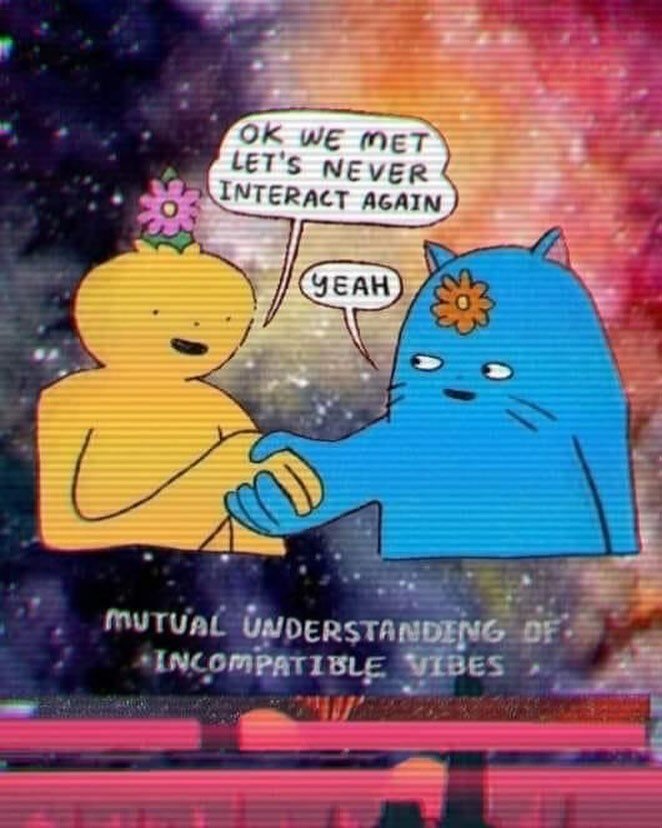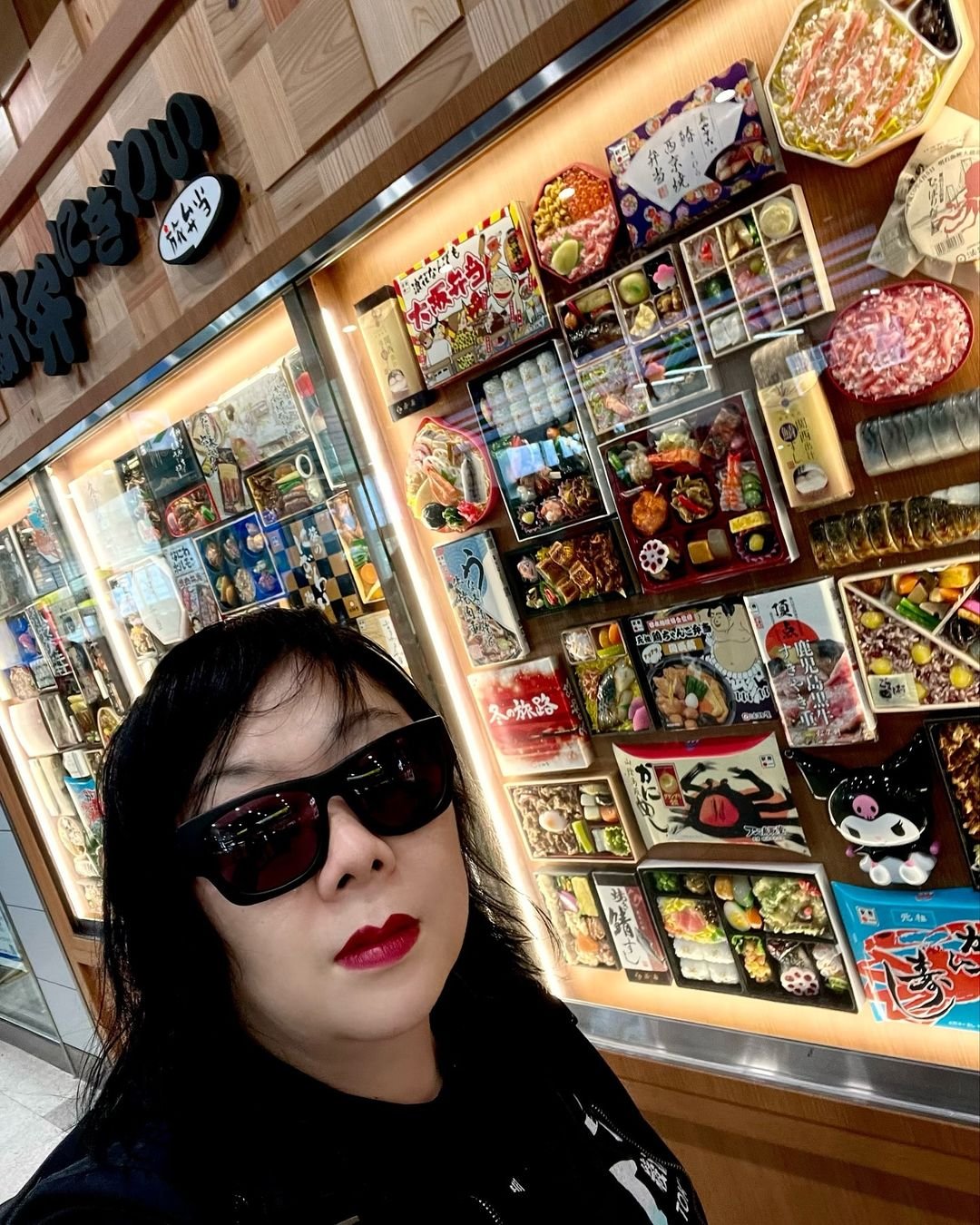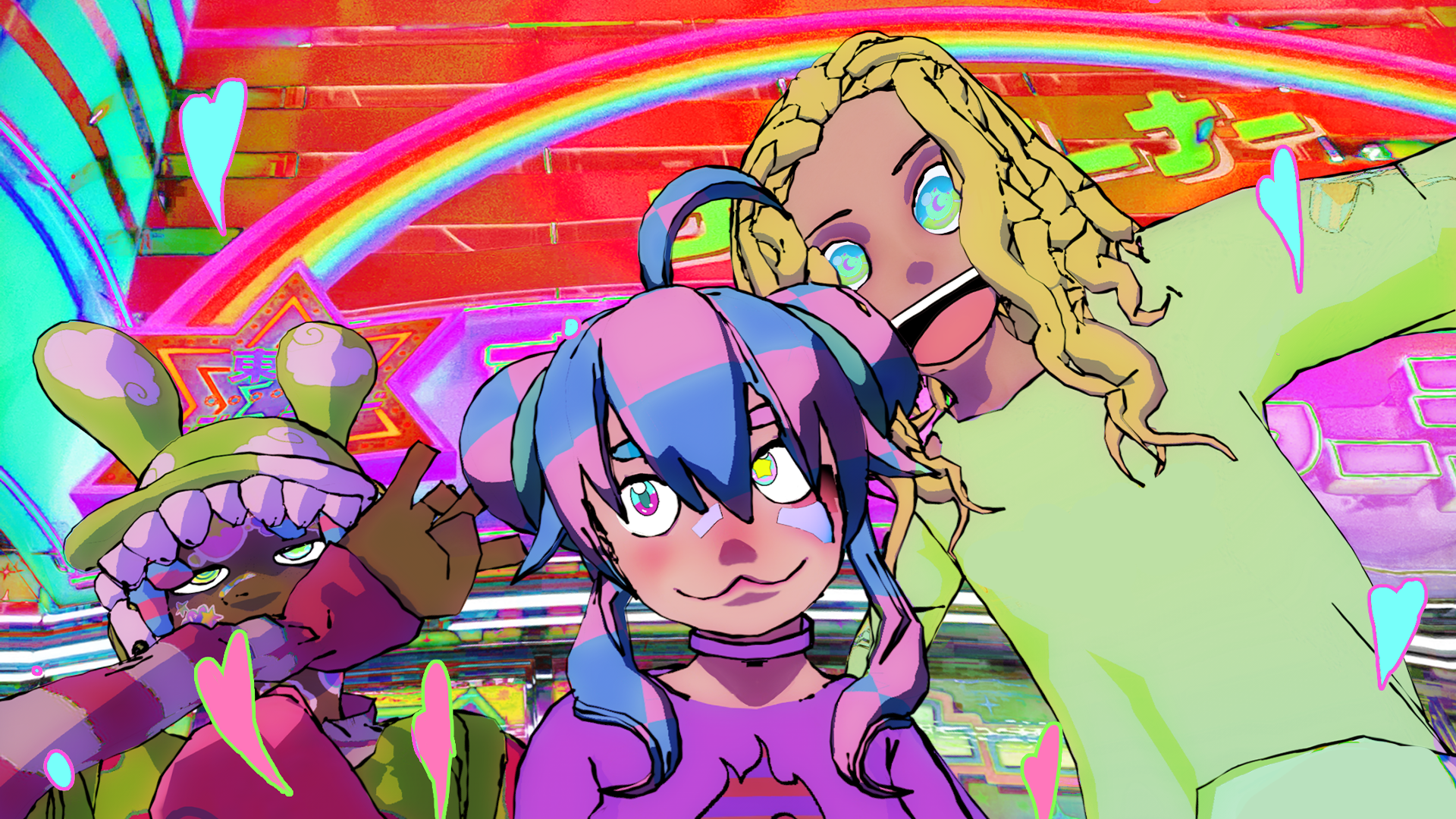Meme Queen/Electronic Machine: The Chronically Online Brain of Hiroko Yamamura

Meme account managers are probably top of the list of unsung heroes [or anti-heros] of the internet.
Shrouded in mystery, strange Instagram icons, and the occasional blurry admin reveal photo, these caretakers and cultivators of memes rarely get a shout-out.
An example of one of the memes that can be found on Hiroko’s account.
The origin of the meme reaches back to millennia. But if you want to get super technical, the first meme that’s a similar format to the ones we see today [i.e. cartoon visuals, two-sentence punch line, vague intentions] is traced to 1921. The first academically accepted definition of a meme was made by Richard Dawkins in 1971, where he said they “convey the idea of a unit of cultural transmission, or a unit of imitation."
One of the first recorded memes from the 1920’s.
More recently memes have been defined as an ever-evolving and self-replicating/referencing joke based on anything pop cultural, political, or universally felt.
The earliest memes bring flashbacks of cringe LOLcat memes, Doge, and Rick Roll centric ones of the mid-2010s. But as you are well aware, most memes currently have become extremely niche, unsettlingly existential, and cover topics like politics that are almost too serious to be taken seriously.
Because of their ever-changing nature, it would be futile to talk about all of the most important meme innovations of even the past six months.
However, we want to shine a light on a consistently amazing meme page run by Hiroko Yamamura [@hiroko__yamamura], who daily keeps the bangers coming, ranging from posts that are very relatable and safe for work to content that’s somewhat depraved in the best way.
Admittedly and perhaps somewhat hilariously the sabukaru team fell in love with Hiroko Yamamura’s meme curation [via her Instagram account [@hiroko__yamamura] before we learned she’s also one of Chicago’s best techno DJs and has a well-respected Boiler Room set that pretty much everyone into electronic music has watched at one point or another.
In Hiroko’s own words, her entry as a meme page admin arose because “I don't find it very tasteful to constantly post ads or talk about myself, because it’s really not that fun”.
Luckily, Hiroko’s eye for a good meme has only made more people [outside of house fans who most definitely know her] aware of her musical talents without a sense of shameless self-promotion.
It seems like whatever creative outlet Hiroko delves into, she is inspired by similar sources: dark anime, being emo at heart, underground industrial music, video games, and the trials and tribulations of being an emotional human being.
Crowds lining up to hear one of Hiroko’s sets.
Hiroko was raised in a suburb of Chicago, Illinois, and in her teens began taking the Amtrak into the city, and exploring music through record stores like Gramaphone, Hip House, and Wax Trax and local clubs. Using these points of musical exploration as a launching point she began to DJ at various underground Chicago venues and raves.
After DJing heavily in her teens and twenties she took a hiatus from music endeavors, but during the pandemic once again she confirmed DJing was a part of her she didn’t want to leave behind, so she jumped back into the game and quickly integrated herself in a variety of music communities eventually playing sets at Arc Festival, Pitchfork, Slingshot, and a slew of venues from New York City, Ibiza, Shëngjin, London and Tokyo, and beyond.
As a DJ the ever-present question is: how would you define your sound?
Hiroko answers that by just playing what she’s into at the moment, exploring new genres, and building off the industrial music influences that created teenage obsession with crate digging and rave going that continues today.
We interviewed Hiroko about topics both meme and non-meme-related, ranging from how she cultivated her sound and the commercialization of house music to what manga/anime she’s reading right now.
Hey Hiroko, for those who are just getting to know you, could you simply introduce yourself and what you do to the sabukaru network?
So nice to connect with you! I’m a Japanese American DJ that’s based out of Chicago. I mostly play techno and house, and spend way too much time on the internet.
How would you describe yourself in memes? [you can add some memes that describe where you are at right now].
That’s a tough one! Memes for me kinda catch a moment or emotion, similar to a song. They can be fleeting ideas and feelings, a lot like music. It’s important and cathartic to me to express that things aren't all flowers in real life.
People are aware that you’re a crucial DJ in Chicago’s electronic scene, but you’re also unexpectedly the admin of one of the internet’s finest meme pages. Was your meme account the result of being chronically online or was it the result of something more intentional?
I've basically been a sh*t poster since day one, with a bit of a gamer perspective. The internet was a place to be an avatar and just be a bit of a disruptive person. I’d like to think I’ve toned down a bit, but yeah. I’m online way too much. As a DJ, I don't find it very tasteful to constantly post ads or talk about myself, because it’s really not that fun. I’d rather just share a joke or a feeling that we can all enjoy or hate together. If I stopped making music tomorrow, I’d just be posting even more.
Memes are now accepted as legit art in a lot of circles because they can be carefully thought out visuals with a social or political meaning. How do you think memes evolved to their current from?
At its core, a platform like Instagram is for images. I’ve often heard criticism that folks don't “like” the best music, or follow the most skilled artists on the app, but that’s really not what it’s for.
I don’t think a picture app should be how one measures their value in an ecosystem that has very little to do with their art. Personally, I don't “create” much content, I think I'm just a doom scroller who sees things I like and steals them. If it passes the vibe check, I can't stop myself.
What are some of your favorite meme accounts right now [aside from your own] or memes you’ve liked in general recently?
I mostly dig in the pits of Facebook groups, 4chan, and reddit, but I follow way too many models and fashion and anime pages. Most of my follows are friends or goth chicks or sabukaru.
Many people say they are active on Instagram mostly to browse new memes, or that memes are the only thing that get them through the day [myself included]. Why do you think memes have become so important to so many groups of people?
I think there’s a vagueness to a meme, that people can attribute their own ideals and morality to. There is also a disposable nature to them, that allows you to scroll to the next thing and not latch onto them. They are kind of fleeting ideas that you can forget about in moments. What feels like an impossible moment in life, can lead to laughter in the next second depending on how you interact with the content.
Personally, knowing that there might be people who are feeling the same way as me at that very moment gives me a strange sense of community, as problematic as that might be. If there’s anyone in the world that can identify with me, we have a major problem.
Now, let's get to the musical side of your creative talents. Audiences have stated your DJing style incorporates a bunch of influences, but in one or two sentences how would you accurately sum it up?
As a DJ, it’s important to deliver music with your story and your lens. Every bit of media you’ve consumed until that moment informs what you think constitutes a good party, and a good vibe.
House music emerged primarily from Chicago’s Black DJs and predominantly Black communities and then diffused into wider consciousness. How did you get connected to people in those scenes and later develop your sound?
Being Asian American in Chicago, you never really fit in anywhere. I was very lucky to be welcomed into these spaces in my youth. Spending too much time behind a computer and learning production software and hardware had me welcomed in studios and sessions quite early into my journey with really foundational Chicago artists, many from Black and Latinx backgrounds. I feel quite privileged to have been taught and seen so much from some really great people.
In past interviews, you’ve said that Chicago’s sound deeply varies from neighborhood to neighborhood, could you describe the sounds of two areas where you think good electronic microgenres are emerging from?
Honestly, I can only explain the perspective of where I'm from, which is a pretty affluent suburb of Chicago. While I visited and went to events around Chicago, to claim a sound from an area would just be as a tourist.
However, not being entrenched in the areas gave me some perspective on stories and legends, but I very much was a consumer. My friends and I absolutely spent time in neighborhoods we had no business to be hanging out in at the time, in hindsight, it's not a good feeling to think about throwing events in disaffected areas because you were able to pay off local regulating authorities.
There have been big transitions in the past decade in the world of electronic music, where it rapidly splintered into micro-genres and also into the major spotlight via the rise of EDM Festivals and mainstream attention, festival-core, and TikTok fame. How do you see this as a development, is this a good push or something that dilutes the core art form and genre?
I think it’s important to respect the history and personal experiences of your own music journey, especially when it has been so formative in your life. Subculture and scenes were spaces to navigate and figure out life, and the soundtracks and artists you love are inseparable to those experiences.
However, I don't think you can apply those same ideals to folks that didn't have those same stories. While music might transcend age, experience, and scenarios do not. The reality is electronic music has been a commercial and profitable commodity for some time. Just like any genre, there is good music and bad music, however whether or not it gets popular or not is a wild card. What you see now is more participation in the system due to social media.
In previous days, music was profitable enough that major advertising companies would be behind selling “underground” music, with board rooms picking key features and ideals to propagate in places eager consumers like me ate up. Places like TikTok and big festivals are where people who like music are, whether or not you discount them due to their predispositions is up to you as an artist. For me, enjoying music is the only thing that matters, whether it’s during a gaming session, in an underground warehouse, or discovering techno at a festival. No one can tell you what to do.
In the end, being someone to point fingers and make requirements for music enjoyment just doesn’t sit right with me. In fact, excluding people based on marketing terms is just not cool. Art is a personal experience as is experiencing how it makes you feel, don't let someone's opinion ruin that.
Who would you say were your biggest mentors in your career? Is there anyone in particular you are proud to have mentored yourself?
There have been so many people that are part of my music journey, however I’ll always need to give nods to my late great guitar teacher, William Tucker. He was a major player in Chicago’s industrial and rock scene, and a patient teacher to an overly excited kid with very little natural talent.
What are the biggest differences between electronic music/club culture you’ve seen between Japan and the U.S.?
I don’t see a huge difference between scenes, I think no matter what, local artissts are important. I think we’re lucky that electronic music is really an international phenomenon. Many of the Japanese artists I've become friends with I’ve met outside of Japan initially. I think there may have been more of a focus on artists outside of Japan, but during lockdown there has been a major shift back to Japanese artists.
You were born and raised in the Midwest, but frequently play sets in Tokyo and take inspiration from Japanese culture. How would you describe your connection to Japan, do your experiences with Japanese culture have any impact on your musical career?
There’s no doubt that my experience with Japan is from a foreign perspective, even with regular visits and family there, it is unique to be a foreigner that can blend in. As a kid, anime and video games were one way that I kept engaged with pop culture, but of course entertainment isn’t a reflection of real life. A lot of my own journey with techno stems from Japanese manufactured equipment like Roland drums machines, and how much the machines shaped the sounds that are still foundational.
Hiroko in Osaka.
It’s been surprising to me how while Japan has its legends and innovators, the story of techno doesn't have as much of a legacy as somewhere like Detroit or Chicago. The wonder that these machines created and the futurism they delivered is just as much of a building block and part of the history of music.
Dark anime like Berserk [a sabukaru favorite] has influenced a lot of your work, why is that?
Wow, Berserk is a story that is close to my heart. As a kid, manga and comics were a way for me to escape reality and Berserk is a manga I was exposed to quite early [probably too early] and like many people just initially enjoyed it for its shocking aspects and edgy content. However, almost 35 years later, it is one of the last pieces of fiction continuing an arc that has remained true to its initial pages and intention. While many shocking and horrific things happen to characters in other pieces of media, how many still live with the consequences of their choices or the trauma they endured still to this day.
Even though Miura has passed on, it is a piece of dark fantasy and fiction that is unmatched in its scope, messages of life, and the story has been a place of comfort for me. Seeing stories where people do not get what they want, lose everything, yet find a way to continue on resonates deeply. It’s wild to see people cram a story you've slowly read for decades in a few weeks, and still have a similar feeling is a testament to the craft.
Are there any anime/manga you recommend or are currently watching/reading?
I admit I'm quite a fan of Fujimoto’s Chainsaw Man. I know everyone hated the animated version, but I really enjoyed what MAPPA have been doing. I’ve stayed away from the manga to not spoil things, but we’ll see how long I can wait. I am enjoying Tsukushi’s Made In Abyss, with its insane story and gripping reveals. It’s got some problematic content that really makes you question what is acceptable in art, and I've sworn it off a few times, but there’s really something about the story and the way the mystery is expertly fed to you, that makes you endure some really weird and not ok content.
Where are some of your favorite spots for good electronic music in Tokyo, are there any crews/DJs you’d like to give a shoutout to?
Japan has a wealth of legendary artists and venues. VENT, WOMB, and Circus are some of my favorite spots, and they all feature some of my favorites like Risa Taniguchi, Haruka, Nobu, Drunken Kong, and others. They have been comfortable inclusive spaces that focus on the music.
Interview by Ora Margolis
Written by Ora Margolis
Layout by Miles Renney
Editor’s Note: For clarification Hiroko Yamamura does not take credit for originally creating the memes she reposts on her Instagram account.




















